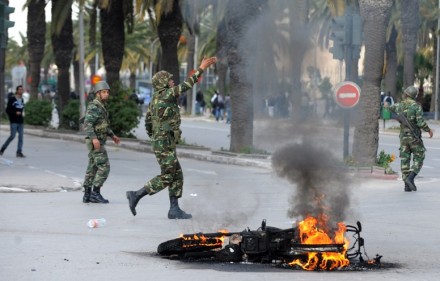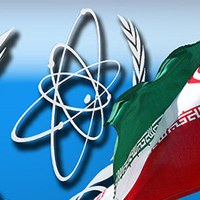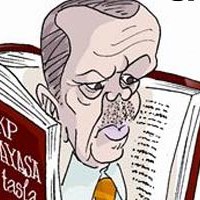![]()
Mon, Jan 17, 2011 | The Rubin Report | By Barry Rubin
Revolt in Tunisia: When Arab Regimes Do (and Do Not) Tremble
May the good Lord protect us from news analysis and Middle East experts. Is the Arab world really in shock over the Tunisian upheaval? Is this really a symptom for a coming upheaval in the Arab world?
Perhaps I’m wrong but a note of caution is in order. I think the answer is “no.”
Let’s begin by looking back at far bigger shocks that have made Arab regimes tremble.
First, there was the fall of Communism and the Soviet bloc. The Soviet Union was the superpower patron of many Arab regimes, their source of weapons and diplomatic support, their supposed protector from Israel and the United States.
Yet more than that, it was a basic role model–especially for political and economic organization–for a number of these regimes–most obviously Egypt, Iraq, and Syria but also for others as well. I don’t mean they copied it exactly by a long shot. But the statist, single-party rule, government control over wide swathes of life is how they functioned for decades. If you’re interested, I wrote a book on this called Modern Dictators.
How did the regimes respond then? By tightening up and killing off real hope of democratic reform. And they did quite well for themselves. I wrote about it in “How Arab Regimes Dealt with the Democracy Challenge.”
There was also another time when (some) Arab regimes trembled, the Iranian revolution of 1978-1979. Indeed, they are still trembling at the prospect of overthrow by a revolutionary Islamist movement. These groups now form the principal opposition in most Arab countries–but not, as we shall see, in Tunisia–and elements of them are quite ready to use violence. Indeed, this is the most important conflict not only in the Arab world but in the Middle East altogether.
And there is a third occasion when (radical) Arab regimes tremble: the U.S. overthrow of Saddam Hussein’s regime in 2003. Might the United States also overthrow them? This applied especially to Syria and Libya but others felt it also. As totally unlikely as this seemed in Washington it was not so unthinkable in Arab capitals. But they got over it when it became clear that there was no such threat. I discussed how Syria dealt with this in my book, The Truth about Syria. Libya reacted by surrendering all of its nuclear ambitions.
So Arab regimes begin to tremble sometimes. But when the going gets tough the tough don’t tremble very long. They take counter-action.
Now are the events in Tunisia a new occasion for Arab regimes to tremble? Well, maybe a tiny bit for a tiny moment. The fact is that Tunisia has been a special case among Arab regimes for decades. It is the most Europeanized, the place where women have the most equality, and the Islamist movement is proportionately weakest. It is also the only country that has had just two rulers in 55 years.
Here’s an excellent article on why the Islamist movement in Tunisia is weaker by Aziz Enhaili and Oumelkheir Adda.
Compare this to neighboring Algeria where the Islamists built a power base in part on similar material grievances to those that motivated the Tunisian riots, won an election, were then confronted by the military, and the result was an incredibly bloody and vicious civil war in which tens of thousands of people were killed.
Also compare this to Palestinian politics where corruption and incompetence led to the rise of Hamas, which seized the Gaza Strip by force. Let’s face it, if not for massive Western aid and Israel security assistance to the Palestinian Authority–which does not repay this with any flexibility in negotiating, by the way–Hamas would probably be ruling the West Bank by now, too.
That is the kind of scenario faced in various ways by Egypt, Jordan, Syria, and other Arab countries. That is what they fear, not a citizens’ spontaneous uprising that is easily defused by some minor changes at little cost in casualties.
The weakness of the Islamists–and in some ways Tunisian regime’s the less totalitarian approach, which at times was quite brutal but not so systematically so as some others–left the door open for moderate pro-democratic forces in a way that hasn’t happened in any other Arabic-speaking country.
If you are interested in the remarkable story of how Tunisian Islam has differed so drastically from that in other countries, read my article about that here or a longer article by Lafif Lakhdar, “Moving From Salafi to Rationalist Education.” This factor gave more “secular” politics space, a space which in Egypt and Jordan, for example, is filled by the Muslim Brotherhood.
At any rate, there is no reason to believe that the events in Tunisia signal a regime change but only a partial leadership change.
What does it mean for other Arab countries? It calls to their attention the stress of serious economic difficulties given international problems and local mismanagement. The signal is that governments have to ease up a bit on their masses regarding pricing of basic commodities and other services. An obvious case in this regard is Jordan. But Jordan is crisscrossed by East Banker/Palestinian and pro-regime/Islamist factors that make it quite a different situation.
Remember that the notable thing about the Tunisian upheaval was that it was a spontaneous rebellion against an incompetent and corrupt government that had followed roughly the same policies for 55 years without a single serious challenge. Spontaneous rebellions are not going to happen if there are people clamoring to organize them for a specific political agenda beforehand. (The closest thing to that happening before was in Iran in 1978, but that’s another story also.)
Incidentally, the thing to watch now is whether the Islamists profit from the discontent and the partial opening up of civil society to become much stronger. In that case, a future crisis might follow the pattern more common now in the region.
Incidentally, a senior U.S. diplomat told me about a meeting he had with Tunisia’s (up until hours ago) president many years ago:
“I remember his telling me that he fights Islamism by increasing the number of government projects in districts where the Islamist movement might be getting stronger.”
“As for Islamism he told me the following: “They brainwash people. They brainwashed my mother. She called me and said: ‘I thought I raised you to be a good Moslem. Why are you against God?’ I had to tell her: ‘You raised me to be a good Moslem and I am still a good Moslem. Don’t believe what these people tell you.’ But the brainwashing goes on and we have to deal with it.””
Leaving aside the future of Islamism in Tunisia, though, this is not a turning point in Arab or Middle Eastern political history. It will, however, take its place as a precedent that will affect the thinking of governments, Islamist oppositions, and the small pro-democratic movements. It gives the governments cause to make adjustments, the Islamists ideas about posing as “good government” activists, and the democrats some hope for the future.
About the author,
Barry Rubin is director of the Global Research in International Affairs (GLORIA) Center and editor of the Middle East Review of International Affairs (MERIA) Journal. His latest books are The Israel-Arab Reader (seventh edition), The Long War for Freedom: The Arab Struggle for Democracy in the Middle East (Wiley), and The Truth About Syria (Palgrave-Macmillan). The website of the GLORIA Center is at Gloria-Center and of his blog, Rubin Reports, at rubinreports.



 RSS
RSS











Revolt in #Tunisia: When #Arab Regimes Do (and Do Not) Tremble | #Jasmine #Revolution http://j.mp/fMtK4s
RT @CrethiPlethi: Revolt in #Tunisia: When #Arab Regimes Do (and Do Not) Tremble | #Jasmine #Revolution http://j.mp/fMtK4s